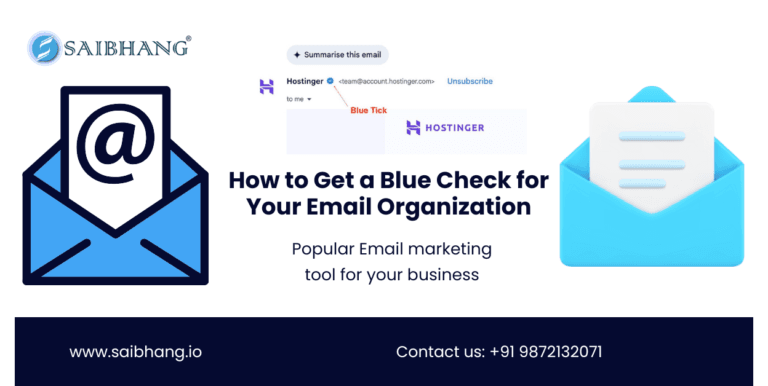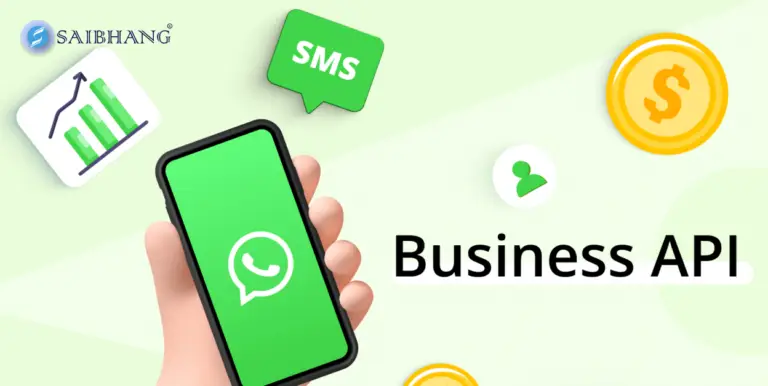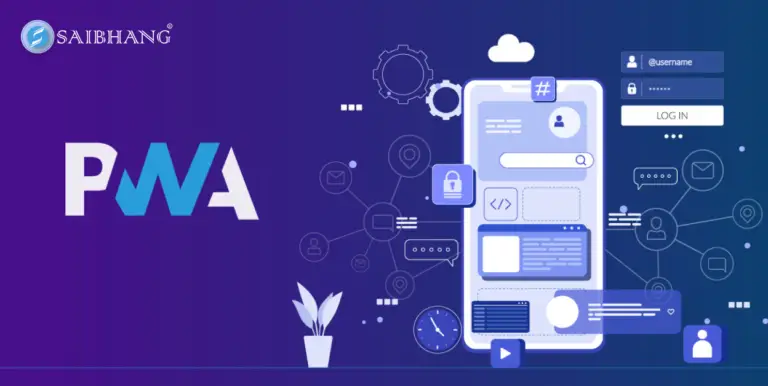How We Kept the Google Play Android App Ecosystem Safe in 2024
The Google Play ecosystem is one of the largest digital platforms, serving billions of users worldwide. Ensuring the safety, security, and privacy of users has never been more critical. Over the years, cyber threats have become more sophisticated, and Google has continuously evolved its security mechanisms to stay ahead of attackers. In 2024, significant advancements in AI-driven threat detection, collaborative developer security initiatives, and multi-layered protection measures have further strengthened the Android app ecosystem. At Saibhang, we recognize the importance of these security advancements and how they impact the global digital economy.
The Growing Importance of Security in the Android Ecosystem
With over 3 million apps on Google Play, securing the Android ecosystem requires continuous innovation and vigilance. Cybercriminals deploy increasingly advanced techniques, including malware distribution, phishing, and fraudulent apps, to exploit vulnerabilities. User data protection is paramount, and companies like Google and Saibhang work relentlessly to mitigate risks. In 2024, Google Play blocked over 2.36 million policy-violating apps from being published and banned over 158,000 malicious developer accounts. These numbers indicate the scale of the challenge and the effectiveness of Google’s proactive security approach.
Leveraging AI-Powered Threat Detection
One of the most notable improvements in 2024 has been the integration of artificial intelligence in threat detection. AI-driven security models allow Google to proactively identify and eliminate threats before they reach users.
AI-Assisted App Reviews: Over 92% of human app reviews now leverage AI, enabling quicker and more accurate decisions regarding policy violations and security threats.
Automated Malware Detection: AI-powered scanning tools analyse app behaviours and code patterns to detect potentially harmful applications (PHAs). This technology ensures that even the most sophisticated malware variants are identified and removed from the platform.
Adaptive Learning Models: Google continuously refines its AI models based on emerging security threats, ensuring they remain effective in mitigating new attack vectors.
At Saibhang, we complement these efforts by providing AI-driven cybersecurity solutions that help developers identify vulnerabilities in their applications before submission to Google Play. Our *Machine Learning Security Scanner* detects suspicious app behaviours and provides actionable insights to developers.
Strengthening Developer Accountability and Compliance
A secure app ecosystem relies on the collective responsibility of developers. In 2024, Google introduced new policies and developer requirements to enhance security and privacy measures.
Reducing Excessive Permissions: More than 1.3 million apps were prevented from gaining unnecessary access to sensitive user data, a major step toward minimizing data breaches.
Mandatory Two-Factor Authentication (2FA): Developers must now enable 2FA on their accounts, ensuring an additional layer of protection against unauthorized access.
Enhanced Developer Identity Verification: Strengthened verification processes ensure that only legitimate developers can publish apps, reducing the risk of fraudulent activity.
Data Deletion and Transparency Requirements: A new **”Data Deletion” option* allows users to easily manage and delete their personal data, reinforcing transparency and user control.
At Saibhang, we help developers comply with these evolving regulations by offering compliance auditing services, *GDPR and CCPA compliance checks, and secure coding best practices* training.
Multi-Layered Security Measures to Prevent Malicious Apps
Security in the Android ecosystem is not a single-layered approach. Google Play utilizes a multi-tiered defense strategy to protect users from threats.
Google Play Protect: This built-in malware detection system scans billions of apps daily, identifying and removing harmful software before it can cause damage.
Play Integrity API: Developers can now leverage the **Play Integrity API* to verify app authenticity and prevent abuse, fraud, and data breaches.
Code Obfuscation Detection: Advanced security mechanisms now detect obfuscated or deceptive code designed to bypass security reviews.
Policy Enforcement at Scale: Google’s automated systems flag suspicious apps, and human reviewers validate security risks in real-time.
At Saibhang, we offer mobile security testing solutions, including *Mobile Application Security Testing (MAST)* and *Secure DevOps (DevSecOps) consulting*, to help businesses integrate security into their development lifecycle
Protecting Users Through Enhanced Privacy Features
User privacy remains a top priority, and Google has introduced several enhancements to improve data protection and control.
Granular Permission Controls: Users can now grant temporary or one-time permissions to apps, preventing unnecessary long-term data access.
Automatic Permission Revocation: If an app remains unused for an extended period, its permissions are automatically revoked, enhancing security.
Stricter Location Access Policies: Apps must provide clear justifications for accessing sensitive data, including location services.
Improved App Data Transparency: New labels on Google Play display how apps collect, store, and share user data, promoting informed decision-making.
Saibhang’s *Privacy Shield* solution helps businesses implement privacy-by-design principles, ensuring compliance with global data protection laws while maintaining a user-centric approach
The Future of Android Security and Saibhang’s Commitment
As cyber threats continue to evolve, the need for proactive security measures remains critical. Google’s advancements in AI-driven security, developer accountability, and multi-layered protections reinforce its commitment to maintaining a trusted Android ecosystem. At *Saibhang, we remain dedicated to supporting developers, businesses, and enterprises with cutting-edge security solutions. Whether through threat intelligence services, compliance auditing, or AI-driven security tools*, our goal is to create a safer digital world for all Android users.
The progress made in 2024 highlights the continuous efforts to protect the Google Play ecosystem from emerging threats. Through AI-driven detection, stronger developer policies, and multi-layered security strategies, Google Play remains one of the most secure app distribution platforms globally.
By collaborating with technology leaders like Saibhang, developers and businesses can take proactive steps to enhance app security, comply with industry standards, and build trust with users. The future of mobile security is proactive, AI-driven, and collaborative—and at Saibhang, we are proud to be at the forefront of this evolution.
For more information on how Saibhang can help secure your applications, visit saibhang.io or contact our cybersecurity experts today.
Recent Blog
-
 App DevelopmentHow We Kept the Google Play Android App Ecosystem Safe in 2024
App DevelopmentHow We Kept the Google Play Android App Ecosystem Safe in 2024 -
 App DevelopmentHow to Get a Blue Check for Your Email Organization
App DevelopmentHow to Get a Blue Check for Your Email Organization -
![Supercharge Your Online Store's Sales with Proven Strategies (1)[1]](https://saibhang.io/wp-content/uploads/2024/07/Supercharge-Your-Online-Stores-Sales-with-Proven-Strategies-11-768x386.webp) App DevelopmentSupercharge Your Online Store's Sales with Proven Strategies
App DevelopmentSupercharge Your Online Store's Sales with Proven Strategies -
![How to Review Google Ads Performance[1]](https://saibhang.io/wp-content/uploads/2024/06/How-to-Review-Google-Ads-Performance1-768x386.webp) Digital MarketingHow to Review Google Ads Performance
Digital MarketingHow to Review Google Ads Performance -
![Simplifying Software Development with Docker _ Unraveling Its Benefits (1)[1]](https://saibhang.io/wp-content/uploads/2024/05/Simplifying-Software-Development-with-Docker-_-Unraveling-Its-Benefits-11-768x386.webp) Software Design and DevelopmentSimplifying Software Development with Docker : Unraveling Its Benefits
Software Design and DevelopmentSimplifying Software Development with Docker : Unraveling Its Benefits -
 WhatssHow WhatsApp Business API Enhances Communication for Businesses
WhatssHow WhatsApp Business API Enhances Communication for Businesses -
 App DevelopmentHow to Build (PWA) Progressive Web App
App DevelopmentHow to Build (PWA) Progressive Web App





